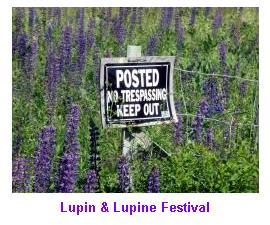Does your web site bring you the business you expect? Do you feel like it should be precipitating more
sales? Have you ever wondered if it was created or optimized correctly?
When business owners invest in a web site they only have three intuitive ways to measure their site: 1) Does it look good? 2) Does it come up well in search engines? and 3) Is it generating {enough} sales?
While only a professional site review can tell you if your web page is all it needs to be, here are several warning signs that suggest your site might not be properly optimized.
1) You wrote your site's text. Search engines use complicated formulas, called algorithms, to determine a web
site's ranking. While Google considers over 200 factors to determine placement, hardly anything
affects position more than your site's text. If you don't specifically know how to write using the technical rules that attract search engines, chances are you missed it by a country mile!
 2) Nobody researched the keywords.
2) Nobody researched the keywords. Web sites that are the most effective are usually written and built to a
specific keyword
strategy. Keywords are researched, the list is vetted online to see whose sites dominate each particular
combination, and then the findings are interpreted to exploit competitors' weaknesses and create a site
strategy. The strategy, in turn, is then used as a blueprint for writing the text and designing the site.
If the word 'research' never entered the room, or your text was written without a strategy predicated by the research results, your chances for a great site probably went out the window.
Having your designer 'tweak' the keywords or text may help a little but it's often insufficient.
3) Your business name and your domain name are similar or the same. Your choice of a domain name is a very significant
contributor to overall ranking. If you are a bakery named 'Sweet Moments', how would you expect a search
engine to associate your domain name with bakery products (or unacquainted consumers either, for that matter)? Unless your
business is a household name (think Pepsi, Xerox, Dairy Queen, etc.) your domain name would be far more
effective if it were composed of search engine intelligible keywords (NHRestaurant.com, WolfeboroHotel.com, PlymouthAutoRepairs.com, etc.).
 4) Your meta tags are the same on each page.
4) Your meta tags are the same on each page. On your web site, put your curser on white space (not in an image)
and right click on your mouse. A menu will pop up. Click on 'View Source' or 'View Page Source' and a new
box will open. Don't be intimidated. What will appear will seem like gibberish but look for the sentences
that start with 'meta'
(see insert). Try this on 3 or so different pages inside your site. If the meta tags
are missing, the page only contains 2-3
types of meta tags, or they all look the same from page to page, they cannot possibly be done correctly. There should be a minimum of 8-10 different
types of meta tags,
and they should be reasonably unique to each page.
5) Your title tags are ineffective. If you 'View Source' on
this page, at about line 17 you will see the following:
<!-- TITLE TAG -->
<title>SEO Efficiency: Easy Ways To Determine If Your Web Site Has Been Properly Optimized!
Erroneous title tags omit keywords, and may only mention your business name and/or 'about us', 'contact', etc. Correctly done, they should lead with, and use keywords, i.e. 'Wolfeboro Lodging: When visiting Lake Winnipesauke, consider the 4-star Wolfeboro Hotel.'
6) Your list of keywords is exhaustive (say 8-12+ combinations). It's true that
meta keywords aren't nearly as important as they used to be, but you shouldn't ignore them either. If a prospective employee said (s)he was the best match for the
job because he is an expert at everything, would you believe it? Of course not! So why do you think the
search engine is that gullible?
7) Your pages' file names are not composed of keywords. A particular page's web address can seem long and
complicated, but really they're not. In this example, http://www.UpstateNH.com/LittletonNH.html,
the file name (usually the part of the address after the last slash [/]) is LittletonNH.html. If the file name
is not an intelligible, appropriate keyword combination for the content of that particular page, then guess what:
you just missed another opportunity! File names like '
aboutus', '
contact', '
products', or '
services' are all
indicators that opportunities
have been lost.
These are by no means all the ways to quickly assess the competence of your site's optimization, but they are some of the easiest. If you discover that your site has missed opportunities, should you go back to the designer and expect changes?
I usually recommend that businesses find someone new. If the simple, obvious things haven't been done, how many other [harder] things have been overlooked? If they weren't done the first time, and you are successful in prodding your designer to add them, how can you know if they, and the other 194+ things that Google examines, have been done correctly?
Thankfully, a good percentage of existing sites can be successfully optimized. Others can't, and in those cases, a total rebuild might be more cost effective. If the thought of more web site dollars makes you shudder, ask yourself which costs more? A proper web site or years of lost sales?
If you
have decided to engage someone to SEO (or redesign) your site, ask them this VERY specific question:
"Google reports that they examine over 200 facets of a web site to determine page ranking. Can you list for me the 10 things that you are best at?" If they stumble and fail to easily rattle off ten or more things, keep looking, you haven't found the right person yet!
About the Author
George C. Jobel does web development and SEO consulting and has been helping clients develop successful
online & multimedia marketing since 1995. The author of numerous articles and publications, George taught
web development and marketing classes for over 10 years. You can reach him at his
web site, or 603.491.4340.















 1
1 2
2 3
3 4
4 5
5 2) Nobody researched the keywords. Web sites that are the most effective are usually written and built to a specific keyword
strategy. Keywords are researched, the list is vetted online to see whose sites dominate each particular
combination, and then the findings are interpreted to exploit competitors' weaknesses and create a site
strategy. The strategy, in turn, is then used as a blueprint for writing the text and designing the site.
If the word 'research' never entered the room, or your text was written without a strategy predicated by the research results, your chances for a great site probably went out the window.
Having your designer 'tweak' the keywords or text may help a little but it's often insufficient.
2) Nobody researched the keywords. Web sites that are the most effective are usually written and built to a specific keyword
strategy. Keywords are researched, the list is vetted online to see whose sites dominate each particular
combination, and then the findings are interpreted to exploit competitors' weaknesses and create a site
strategy. The strategy, in turn, is then used as a blueprint for writing the text and designing the site.
If the word 'research' never entered the room, or your text was written without a strategy predicated by the research results, your chances for a great site probably went out the window.
Having your designer 'tweak' the keywords or text may help a little but it's often insufficient.
 4) Your meta tags are the same on each page. On your web site, put your curser on white space (not in an image)
and right click on your mouse. A menu will pop up. Click on 'View Source' or 'View Page Source' and a new
box will open. Don't be intimidated. What will appear will seem like gibberish but look for the sentences
that start with 'meta' (see insert). Try this on 3 or so different pages inside your site. If the meta tags
are missing, the page only contains 2-3 types of meta tags, or they all look the same from page to page, they cannot possibly be done correctly. There should be a minimum of 8-10 different types of meta tags,
and they should be reasonably unique to each page.
4) Your meta tags are the same on each page. On your web site, put your curser on white space (not in an image)
and right click on your mouse. A menu will pop up. Click on 'View Source' or 'View Page Source' and a new
box will open. Don't be intimidated. What will appear will seem like gibberish but look for the sentences
that start with 'meta' (see insert). Try this on 3 or so different pages inside your site. If the meta tags
are missing, the page only contains 2-3 types of meta tags, or they all look the same from page to page, they cannot possibly be done correctly. There should be a minimum of 8-10 different types of meta tags,
and they should be reasonably unique to each page.






